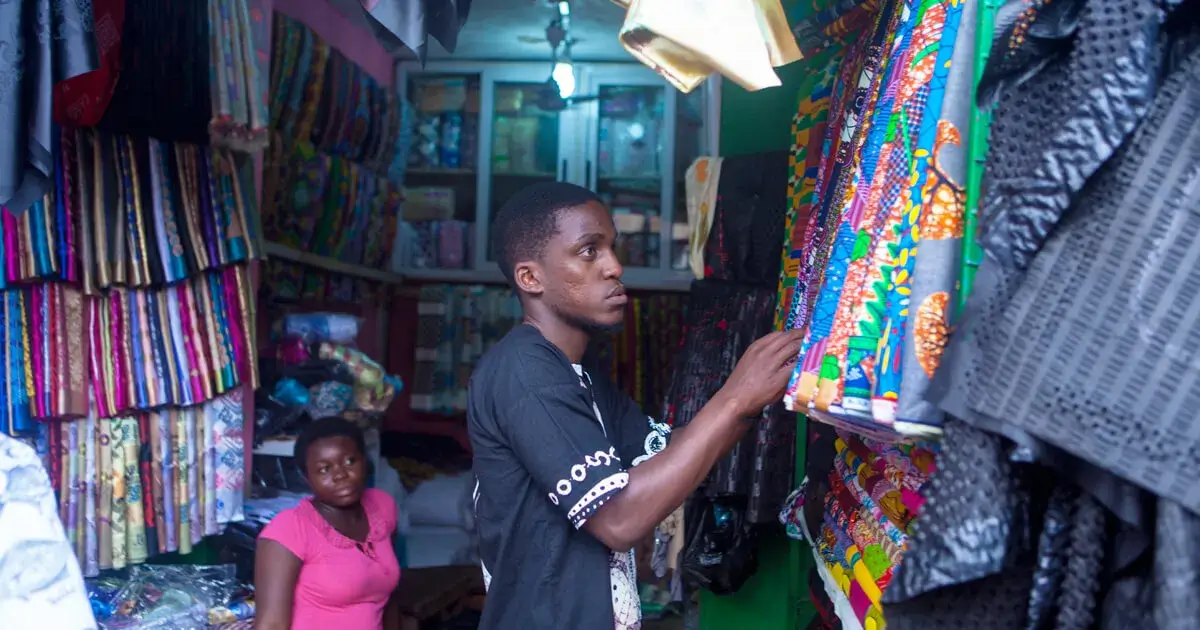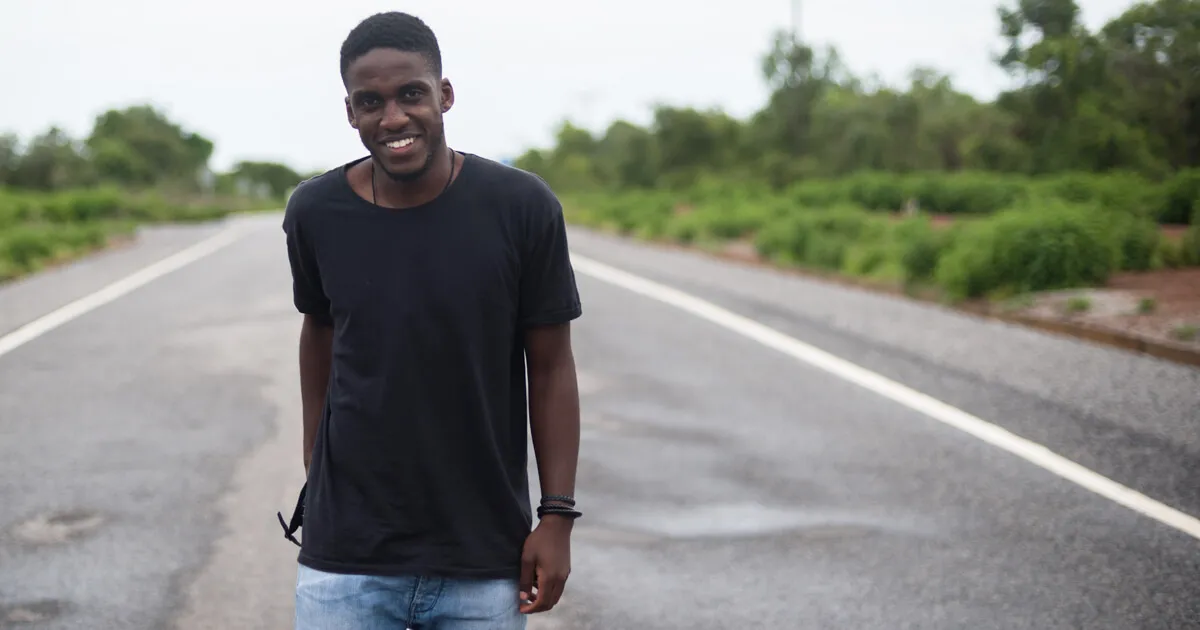December 15, 2016
Stanford computer science student Musila Munuve, born and raised in Kenya, had long dreamed of putting his education and skills to work on the African continent.
In the summer of 2016, the Seed student intern program gave him that chance.
“For high school, I went to the African Leadership Academy in South Africa,” he said. “Its purpose is to educate the next generation of African leaders, training them to go into leadership in any field they’re interested in. When I came to Stanford, my plan was always to return to the continent. Last spring I got an email outlining the Seed program; its big idea is to eliminate poverty in developing countries through creating jobs. That spoke to me.”

Musila pondering a fabric purchase at Makola Market.
Musila applied to become a Seed intern, joining the ranks of Stanford students selected to undertake projects at companies participating in the Seed Transformation Program. The program, which is housed under Stanford Graduate School of Business, offers high-potential leaders based in developing economies a chance to assess their company’s vision, redefine strategies, and make changes toward exponential growth that will create new jobs in the region. Stanford Seed East Africa, based in Kenya, and Stanford Seed West Africa, based in Ghana, eventually will be expanded to include Seed programs in developing economies throughout the world.
Musila had explored other internship programs outside the U.S., but as an international student faced a daunting gamut of paperwork.
“I’d been looking on my own, but when I was accepted to Seed, they made everything easier,” he said. “Not being an American citizen, travel can be harder. It was helpful for all of us to have one compact application. Seed applied for visas, found accommodations, took care of everything that would be really difficult to do from another country.”
Musila accepted an internship with the mobile technology company SMSGH, based in Accra, Ghana.
“They create mobile solutions for different companies,” he explained. “I wanted to learn more about the tech sector in West Africa, and how that company specifically fit into that. The idea was for me to help with customer retention — high numbers of customers were coming in, but a lot would leave. They wanted me to have a closer look at how the teams worked together and how they could better structure.
“It was outside my major,” he admitted. “But I felt confident I could learn about the field and the company and make suggestions.”
Musila arrived at SMSGH during a busy time, when the company was in the midst of a rebranding effort, he said. He found himself working with little structure, attempting to improve synergy between the company’s marketing, sales, and customer service teams. He eventually discovered a bottleneck and was able to develop a plan — now in effect — that’s resulted in a more successful collaboration between teams.
“They left me to do it, which I appreciated, but it was a challenge to figure out and implement,” he said. “As a result of my findings and the work I did, the company was able to hire two new people, restructure the teams, and implement some of the suggestions I had. For me, that was a huge success and I’m very proud of that.”
Working closely with the company’s CEO, along with its business analyst, chief technology officer, and chief sales officer, was an empowering experience, he said.
“I had access to the really big projects and the big tasks that I don’t think interns in the States would work on,” he said. “It was a scale of impact that was really amazing, that I couldn’t have made in America.”
The internship provided him with management experience and an increased self-awareness — of his work and communication styles, and how he’s perceived by others. It also provided him with a profound cultural experience, he said.

Musila traveled to other parts of Ghana, including Mole National Park in northern Ghana. | Tamer Shabani, ’14, MS ’16
“I think too often in going to Africa, a lot of American students can feel they kind of hold the key to solving these problems,” he said. “Students can learn a lot from these companies. They’ve been working on these problems and have more knowledge than the students do. While a new perspective is good, it’s also good to know that your perspective won’t necessarily solve the problem for them.
“This was a big lesson for me,” he added. “You need to go in with an appropriate attitude, keeping an open mind. We all have ideas of what a place will be like. Open yourself to new experiences. Try to engage with the community around you.”
After graduation in 2017, Musila hopes to combine his interest in technology and soccer to help connect fans around the world to each other and the game through digitalization. He credits his Seed internship with galvanizing his plan to someday return to Africa.
“That’s definitely part of my plan,” he said. “It’s allowed me to figure out how I’ll fit in going back to the continent and the opportunities that are present.”
Enjoy Musila Munuve’s story? Read about other Seed Interns.
Check out photos from the Seed Intern’s Stanford Business Instagram Takeover.
Interested in becoming a Stanford Seed Intern? Learn how to apply.
For media inquiries, visit the Newsroom.



